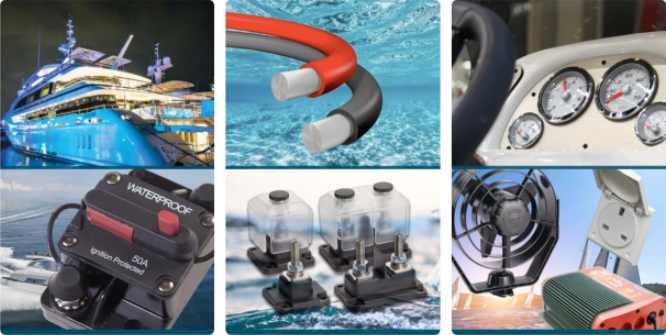Futuristic Aspect of Electrical Power
The need for additional efficient and environmentally friendly power has never been stronger due to the ongoing expansion of power generation, grids, and networks. Direct current (DC) power-based technologies have the potential to significantly increase efficiency in a variety of applications. Some companies were pioneers in DC power and keep innovating its uses to advance how people utilize electricity globally.

Some seasoned sailors and maritime sector aficionados may recall a time when DC power was the main source of electricity on board ships. On ships, AC power soon replaced DC electricity due to its simplicity.
The Onboard DC Grid is a fresh approach to propulsion optimization that combines several DC lines with the propulsion and thruster drive technologies currently in use. With Onboard DC Grid, ship designers can take advantage of both the advantages of new smart DC distribution and the advantages of AC components.
Onboard DC Grid enables the diesel engines to run at variable speed for maximum fuel economy at each load level, just as variable speed drives enable the electric propulsion motors to be operated at their optimal working point. Additionally, full flexibility in combining energy sources, including renewables, is made possible by the Onboard DC Grid.
Although a 60Hz power source can still be linked to the grid, the efficiency boost is mostly due to the system no longer being locked at a set frequency (often 60Hz on ships). The ability to control each power source completely independently offers greater freedom and opens up a variety of opportunities for reducing fuel usage. More cargo capacity is made possible by the added benefits of size, while the weight savings makes the arrangement more practical. Depending on the ship type and application, the fitted electrical equipment will have a different decreased weight and footprint.
On land and in the air, electrical drive systems are considered to be sustainable. The greener alternatives to oil are frequently acceptable for boat electrical supplies and, in the far future, for oceangoing ships as well. Electricity is far less expensive than oil, and particularly marine diesel, which is one benefit of battery switches for power distribution.
Electricity is produced by diesel generators and used to power the electric engine. The ship's propeller is moved by this. This offers a lot of benefits: It reduces fuel consumption by 5% to 20%. Additionally, electrical machines have fewer parts, are less likely to malfunction, and endure less wear and tear. This drive train is still not a hybrid one, though. This is only true if the ship is capable of sailing for a specific period of time without using its diesel engines. In this instance, the onboard batteries provide the energy. Future energy sources for the electric engine could include solar energy, liquefied natural gas (LNG), rechargeable batteries, and more.
For More Info :-
Source URL :- https://sites.google.com/view/electrical-supplies-for-boat/home
Visit Our Social Link :-
Comments
Post a Comment